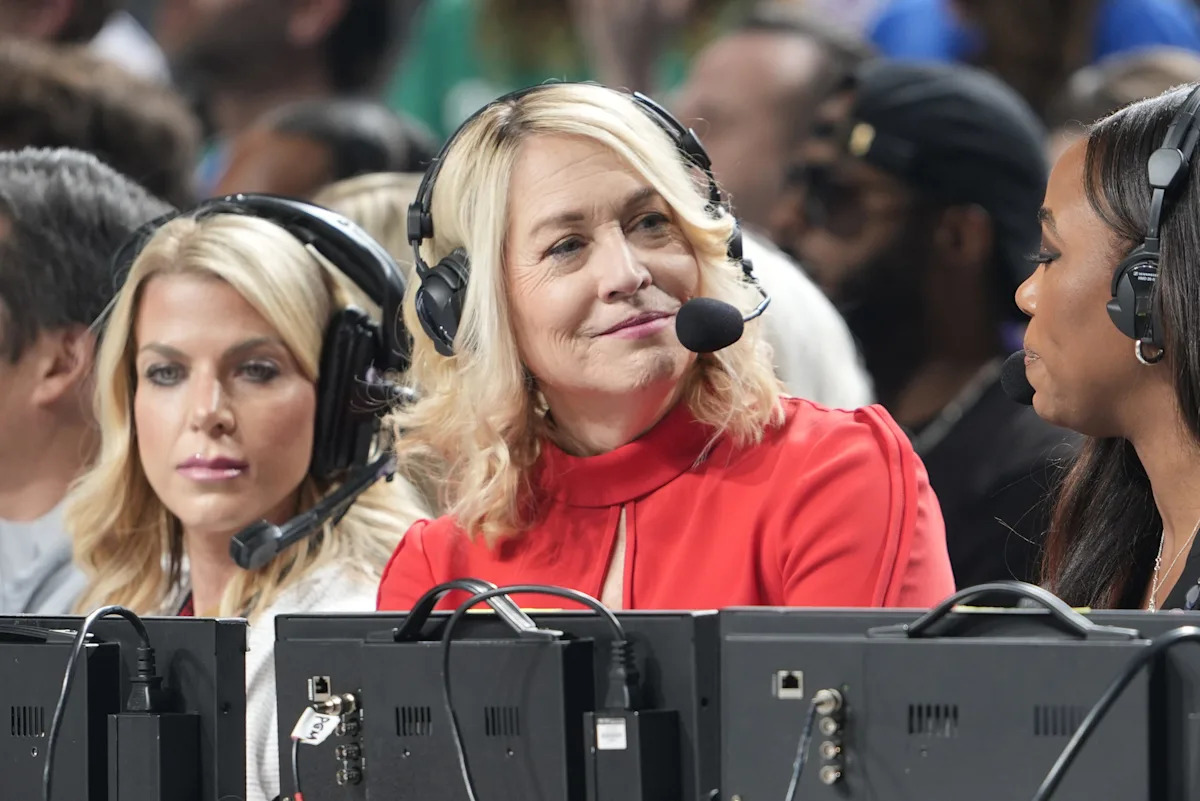
In a recent broadcast of Game 4 between the Timberwolves and the Thunder, ESPN commentator Doris Burke stirred conversation—and not entirely in the way she had intended. As the game unfolded, her remarks about players Rudy Gobert and Isaiah Hartenstein quickly grabbed attention for all the wrong reasons. While discussing the player dynamics, Burke made an unexpected reference to the historical rivalry between France and Germany, leading to a moment that left many viewers puzzled.
During her commentary, Burke humorously suggested that “the French and Germans don’t like one another” while playfully addressing Gobert as he greeted Hartenstein. This comment was met with immediate skepticism from play-by-play announcer Mike Breen, who jokingly interjected, “What are you trying to start here?” This phrase encapsulates the confusion Baker’s commentary provoked, as audience members were left trying to decipher the connection to the game being played.
Reactions on social media were swift. One user tweeted simply “Cringe,” while another echoed sentiments of bewilderment, posting an image of a baffled Shaquille O’Neal alongside a quip about Burke’s unexpected WWE reference. The fallout highlights how Burke’s commentary can polarize audiences; she has a loyal following, yet at times, her observations draw ire from fans who feel the historical connection was misplaced.
Adding to the mix, another comment from Burke during the game raised eyebrows. She referred to Shai Gilgeous-Alexander as a “free throw merchant,” a term implying that the Thunder star has a knack for drawing fouls and benefiting from free throw opportunities. While some fans appreciated the candid analysis, others criticized her for using a term that seemed dismissive of Gilgeous-Alexander’s gameplay skills. A social media user remarked, “There is no way she should be saying this on air,” ostensibly defending the player while acknowledging that Richard Jefferson, another commentator, seemed to understand the nuance of Burke’s words.
The commentary highlights a significant aspect of sportscasting: the delicate balance between engaging viewers with humor and maintaining a respectful analysis of players and their performances.
Notably, this kind of commentary continues to reflect the broader conversation about the role of sports broadcasters. As ESPN prepares to cover the NBA Finals, Burke will likely be heard more frequently, making it all the more important to consider how her style of commentary resonates with varied audiences.
The Thunder’s performance during Game 4, which they ultimately won 128-126, puts them in a commanding position, now leading the Western Conference finals 3-1. This critical win sets the stage for the potential coronation of a conference champion, a pivotal moment in this season’s playoffs. Burke’s comments, although controversial, have underscored the passionate engagement that basketball inspires, engaging fans not just with the scores but with spirited discussions about the nuances of play.
Despite the mixed reception, Doris Burke remains a figure of interest in the world of sports commentary. Her insights, even when they miss the mark for some, encourage dialogue among fans and help keep the excitement around the NBA alive. Her expertise provides a unique viewpoint on the game, but as this incident shows, the interpretation of her words can vary widely among basketball enthusiasts.
As the playoffs progress, basketball fans will undoubtedly continue to monitor both the on-court action and off-court commentary. How figures like Burke navigate the intricacies of sports commentary will be critical, especially as the narrative surrounding the teams and their players continues to add depth to the unfolding NBA storyline.
No matter the controversy, Doris Burke’s commentary serves as a reminder that the dialogues around sports can be as riveting as the games themselves—further proving that basketball is not just a game but a cultural canvas for discussions, jokes, and sometimes early morning internet debates among fans.
Ultimately, Game 4 reinforced the passion and unpredictability of the NBA playoffs, evident not just in the closeness of the score but in the spirited conversations that followed. With more games on the horizon, how Burke and others shape their commentary could significantly impact the viewer experience, as sports and stories continue to intertwine.
Source link









